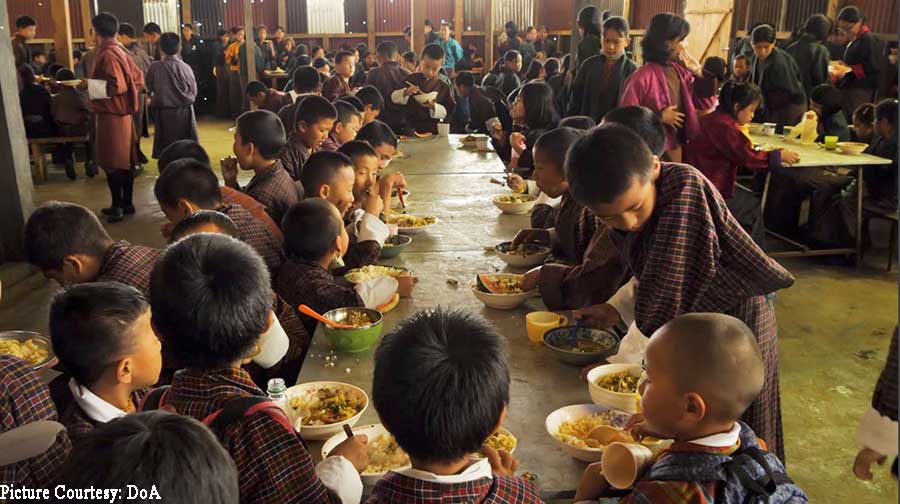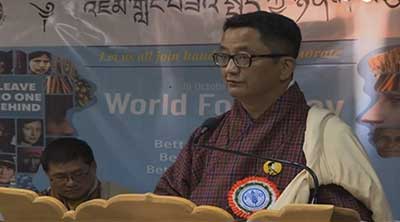
Hunger is a grim issue globally but that is not really the case here in Bhutan. However, the country is confronted with challenges in achieving nutrition security. The Agriculture Ministry underscored this at the World Food Day event, which was held in the capital yesterday.
According to the international report titled “The State of Food Security and Nutrition in the World,” more than 800 million people were affected due to hunger last year. This is 46 million more than in 2020.
However, considering a significant drop in the national poverty rate from more than 23 per cent in 2007 to 8.2 per cent a decade later, hunger is not a significant problem.
But with more than 44 per cent of Bhutanese children being anaemic, achieving nutrition security is a daunting task.
Nutrition security is defined as a situation that exists when all people have access to sufficient, safe, and nutritious food at all times.

“In Bhutan, while hunger is not really a public issue anymore but nutrition remains a concern. What experts are now calling a triple burden of malnutrition, with the co-existence of undernutrition, micronutrient deficiencies, and overnutrition, brought upon by changes to lifestyle and food consumption trends,” tells the Agriculture Secretary, Thinley Namgyel.
The Agriculture Secretary further warned that years ahead are going to be more changing for Bhutan and the global community in achieving food and nutrition security.
He reasoned this due to the impacts of climate change on food production, and the increase in food and fuel prices.
However, being mindful of these factors affecting food and nutrition security, the ministry is reviewing the National Food and Nutrition Security Policy and drafted the Renewable Natural Resources strategy 2030.
The ministry will also review some more ongoing efforts and refine them to realise the country’s goal of food and nutrition security.
Kinley Dem
Edited by Pema Lhaden









